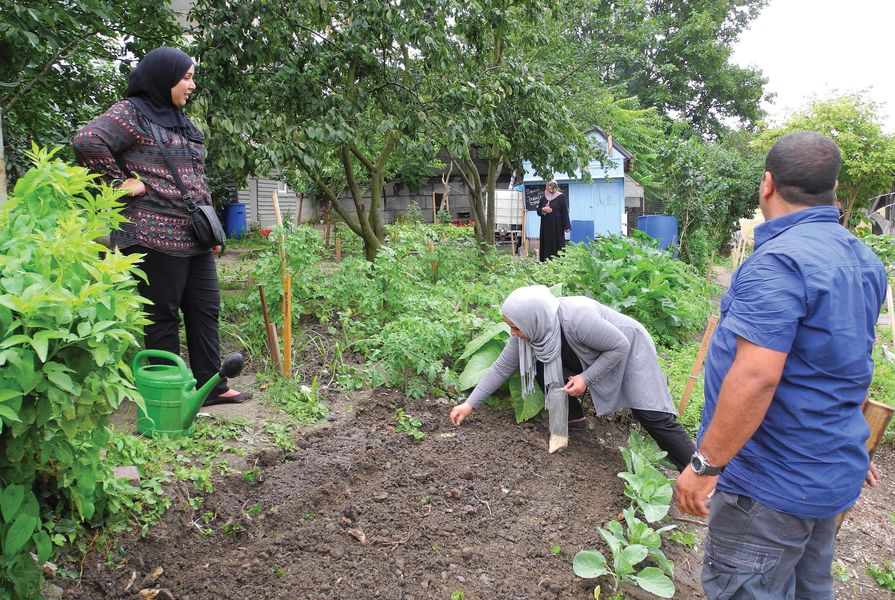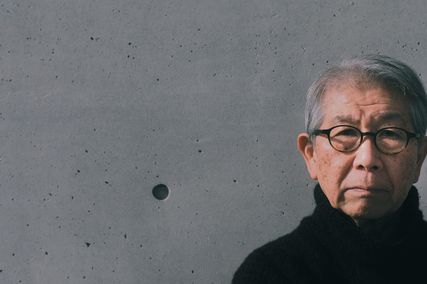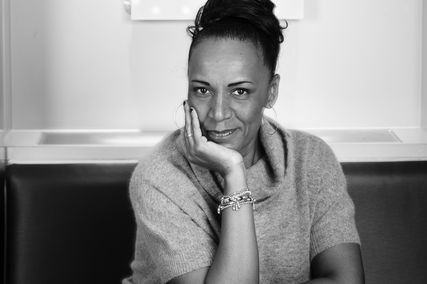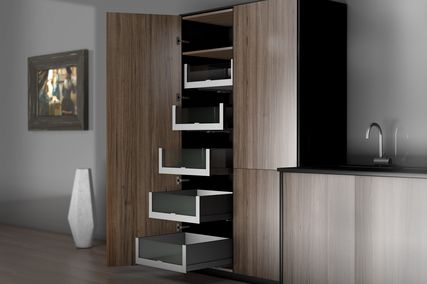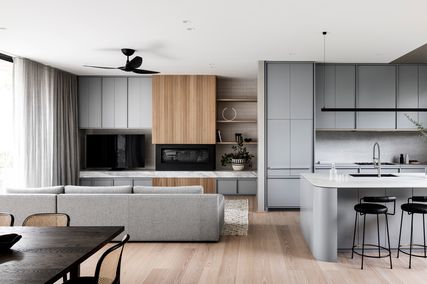Parckfarm is an interactive project in Brussels, Belgium that invites visitors to explore new park typologies through art installations, agricultural performances, workshops and community gardens. Landscape architecture practice Taktyk and architecture firm Alive Architecture collaborated to create Parckfarm as part of the 2014 edition of the Parckdesign festival, with the theme “From the landscape to the plate.” Initially planned to run for five months, the Parckfarm project was so successful that it has since become permanent.

Parckfarm allows local residents to come together to grow fruit and vegetables and keep chickens, ducks and goats as a part of extending private gardening into the public realm. The Parckfarm project is run by non-profit organization Parckfarm T&T.
Image: Courtesy Parckdesign 2014, Parckfarm
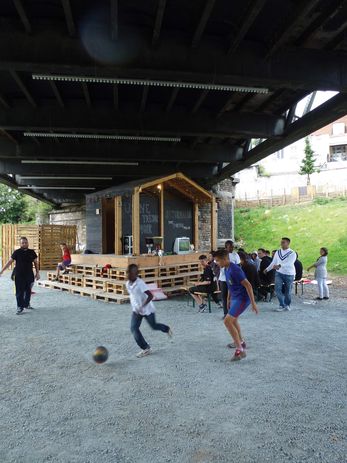
L’Usine du TrésOr Noir (The Black Treasure Factory) was a temporary public waste installation that recycled the park’s organic waste into terra preta (black earth – a rich and fertile soil) for the park and surrounding area. During the festival, participants could take part in a series of educational “rituals.” The installation also served as an impromptu events stage. The project’s instigator, Collective Disaster, is an international multidisciplinary team that works in public space, engaging in social and interactive situations.
Image: Courtesy Parckdesign 2014, Parckfarm
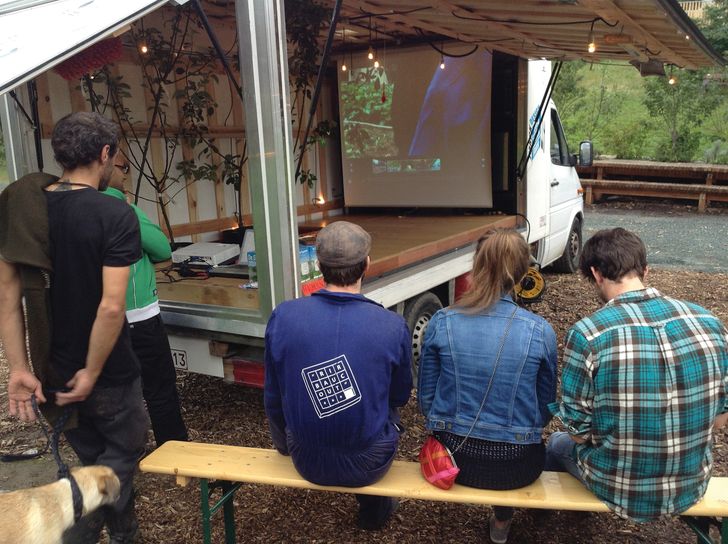
Community members and artists collaborate to create moments of exchange through art installations, agricultural performances and “flavourful experiences.” Activities include workshops (such as cooking sessions, gardening, mushroom harvesting and composting), community farming, debates, films and concerts. The Farmtruck installation allows Parckfarm’s work to extend the physical boundaries of the farm and into the city of Brussels.
Image: Courtesy Parckdesign 2014, Parckfarm
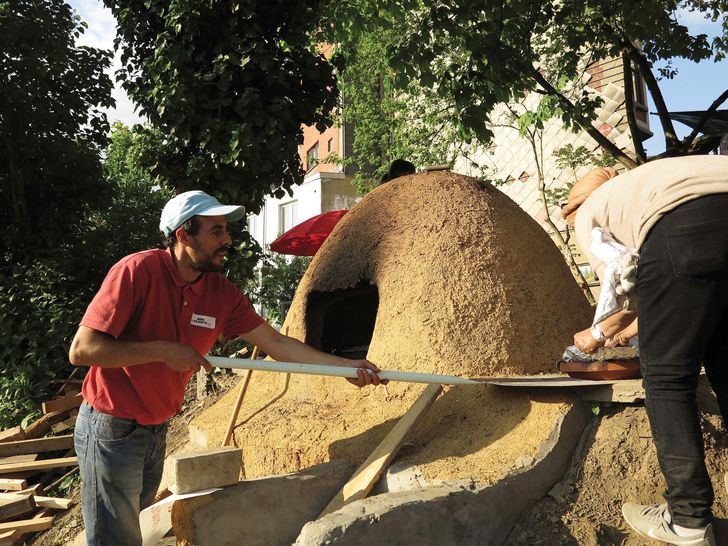
Parckfarm encourages local residents to not only farm but also construct cooking equipment as sites for conviviality and sharing, such as this bread oven.
Image: Courtesy Parckdesign 2014, Parckfarm
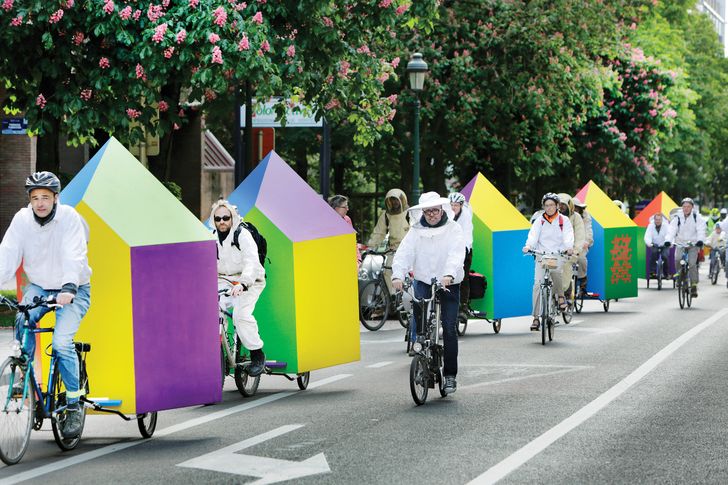
The Bee Car was an interactive installation of beehive huts towed by bicycles. The mobile huts, much like Farmtruck, extended Parckfarm out of its site into surrounding neighbourhoods. In addition to producing Parckfarm honey, the bicycles encouraged community members to study the interior of a beehive and understand the importance of pollinating insects. The Bee Car team included members of SRABE (Société Royale d’Apiculture de Bruxelles et ses Environs), an association of hobby beekeepers who keep bees in an urban environment.
Image: Courtesy Parckdesign 2014, Parckfarm
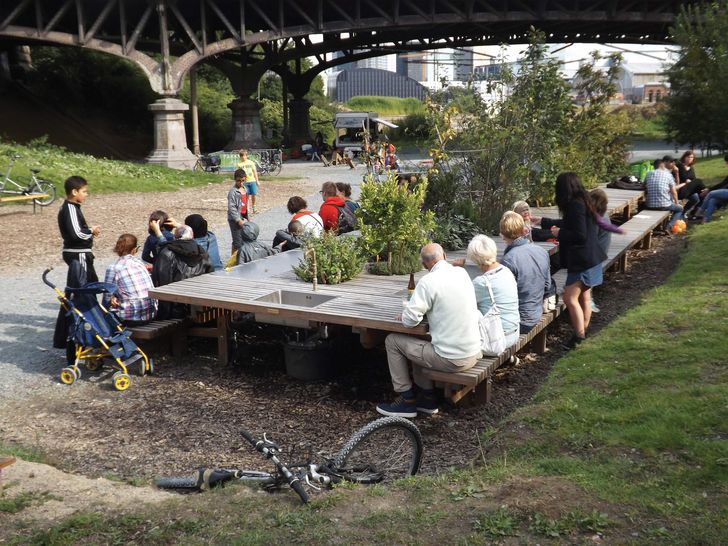
The Landscape Table is literally and figuratively a platform for cultivating, processing, cooking and sharing food. The edible and medicinal plants inserted into the table invite the public to meet and eat in direct contact with a landscape. The Landscape Table was initiated by Groundcondition and Eric Dil Cultural Projects.
Image: Courtesy Parckdesign 2014, Parckfarm
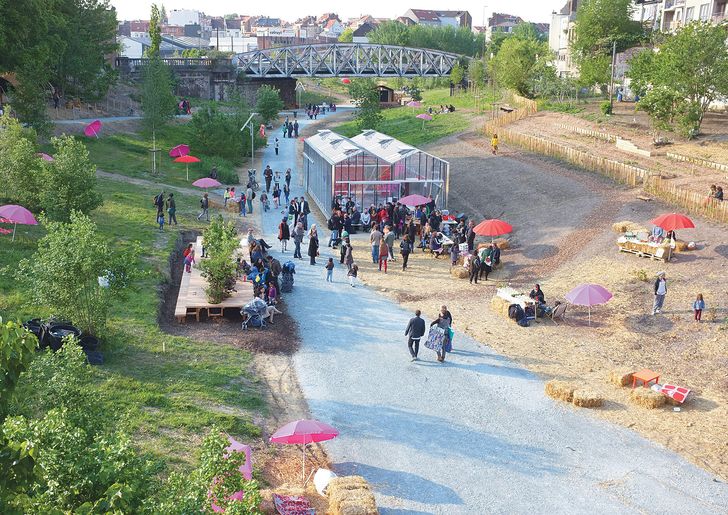
The FarmHouse is a redesigned glasshouse that serves as a place for community members to meet, cook, eat and come together. It includes an information desk, drinks bar, a pick-up point for organic picnic hampers and a venue for rainy day workshops. Its initiators included design practice 1010 Architecture Urbanism, JES (an urban laboratory for young people) and Yota (Brussels’ participatory structure).
Image: Courtesy Parckdesign 2014, Parckfarm
Parckfarm was awarded the Public Space Prize 2015. The annual award is presented by the Antwerp-based Public Space Infopoint to the best public space project in Brussels or Flanders. The awards committee was looking for a new approach to initiatives involving spontaneous participation that forced organizers to let go of traditional design ideas. “In that respect, Parckfarm stood head and shoulders above the rest,” the committee said. “We have never seen something on such a scale in Belgium.”
Image: Courtesy Parckdesign 2014, Parckfarm
Source
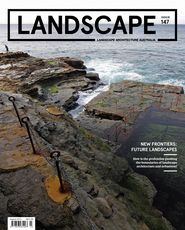
The World
Published online: 8 Oct 2015
Words:
Sueanne Ware,
Chris Johnstone
Images:
Courtesy Parckdesign 2014, Parckfarm
Issue
Landscape Architecture Australia, August 2015

